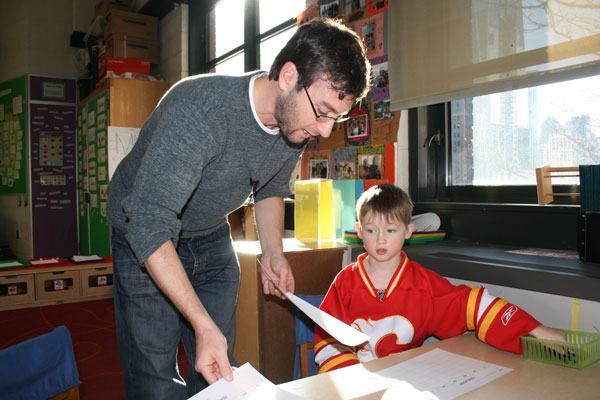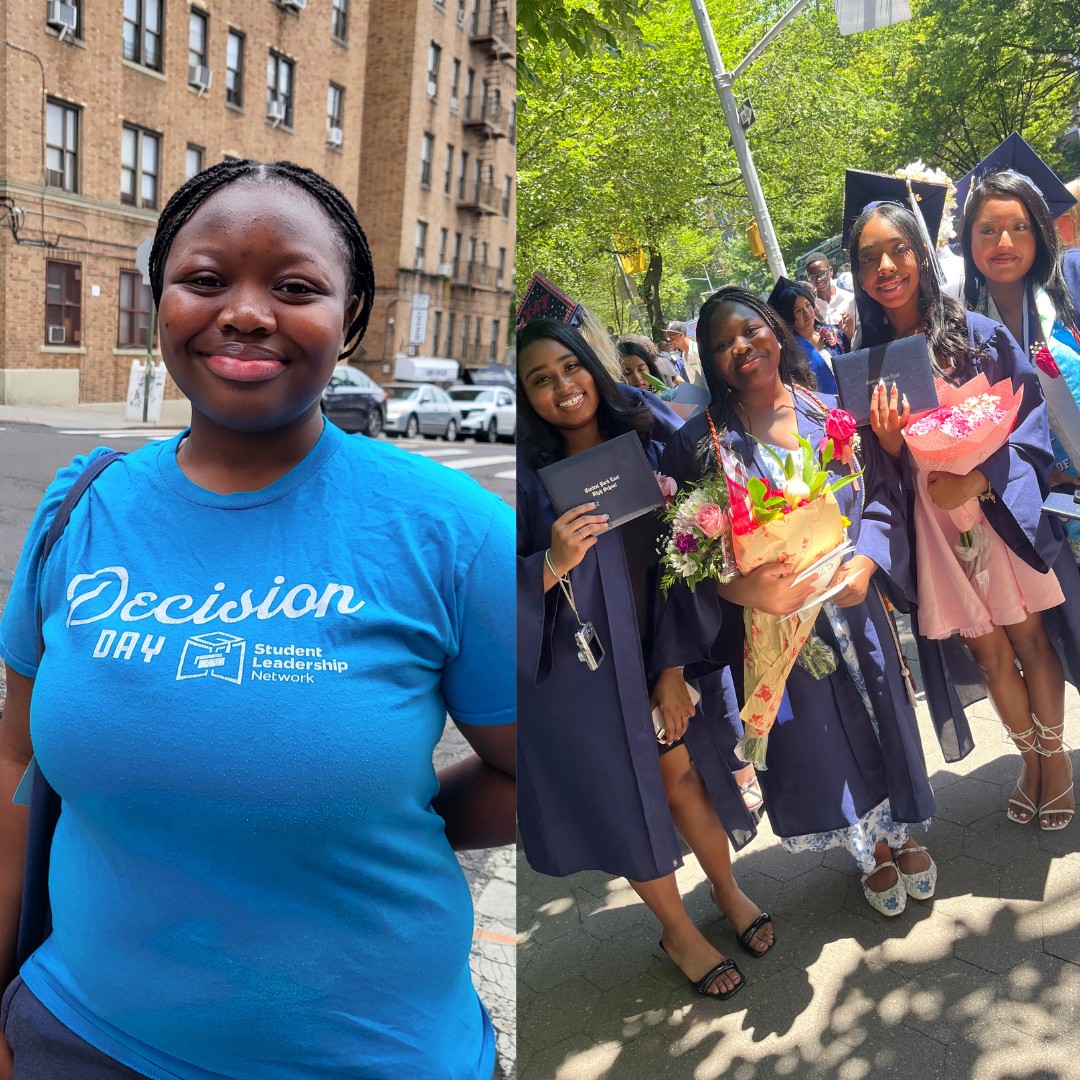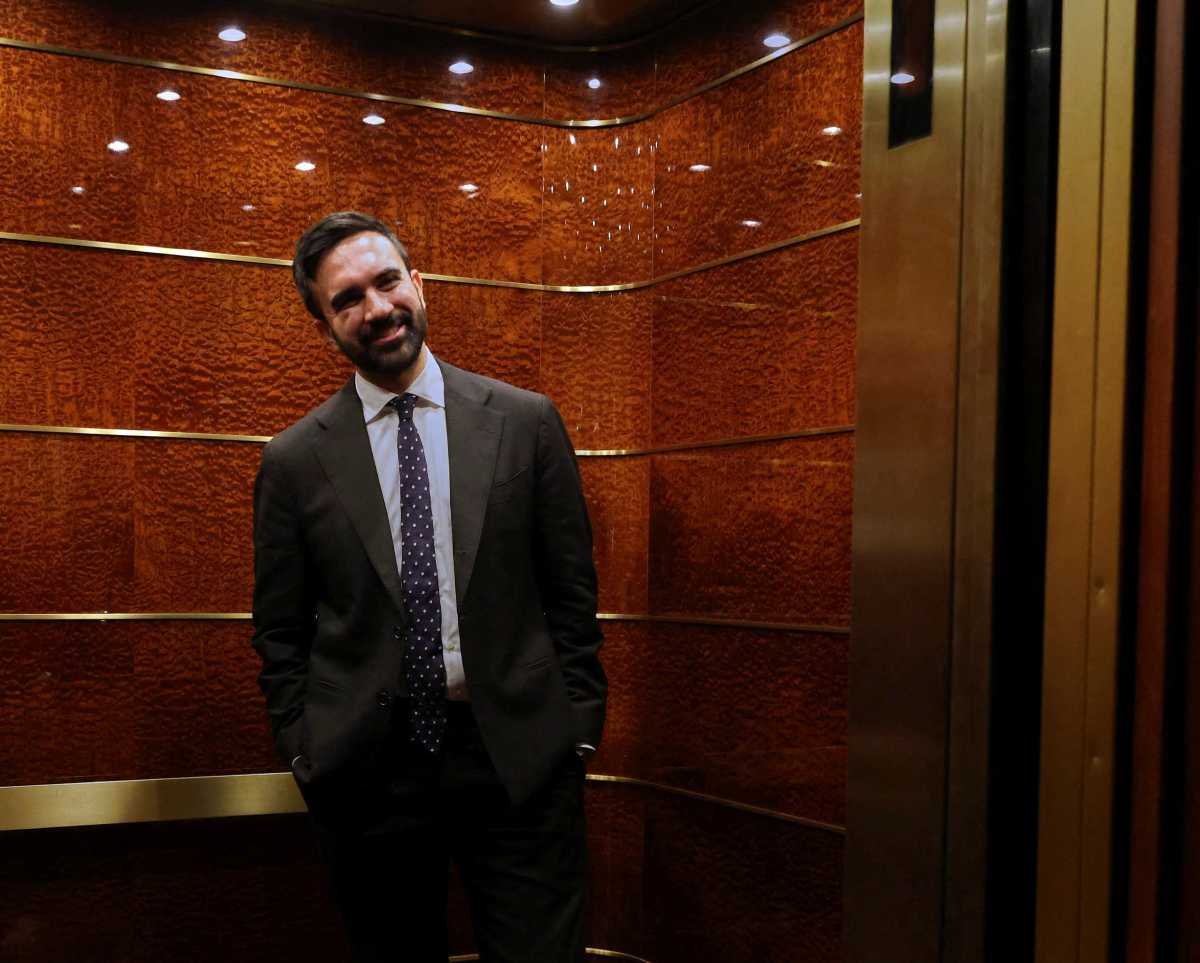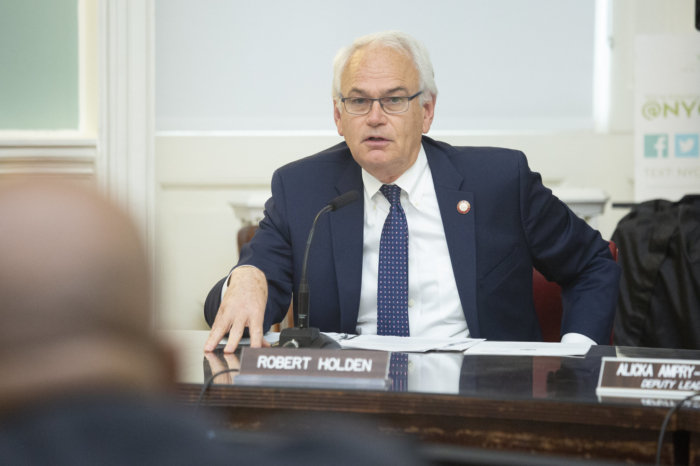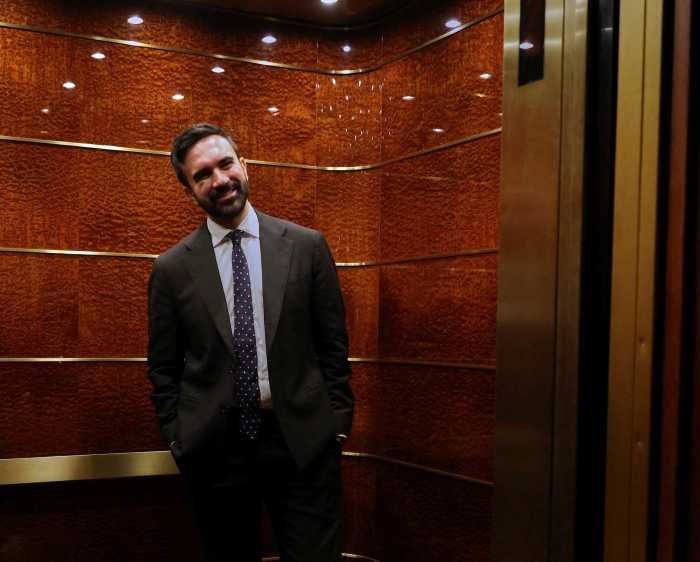BY ALINE REYNOLDS | Ten-year-old Owen Gallagher, who attends P.S. 89, lives the life of a typical fifth grader: He goes to class and, afterwards, plays sports and hangs out with his friends.
Owen, however, can’t hear on his own. In third grade, he was diagnosed with moderately-severe sensorineural hearing loss and has relied on a pair of hearing aids to make out sounds ever since, according to his mother, Leslie Gallagher. The impairment appears to be genetic, since Owen’s older brother, Niall Gallagher, was diagnosed with the same condition at age two.
At the time, the diagnosis was emotionally difficult for Owen to swallow, according to his mother. “I suppose in his eyes, it diminished who he was, since he’s never not been in mainstream [schooling] and he was old enough to recognize and identify it as a stigma,” said Gallagher.
By promoting hearing loss awareness in schools such as P.S. 89, the Center for Hearing and Communication in Bowling Green is trying to diminish that stigma. Audiologists at the center provide speech-language therapy to Owen and more than 50 other children Downtown and citywide, which helps them assimilate into everyday life.
“We want to make sure [the children] have the language, the speech and the listening abilities to be able to function in a mainstream setting,” said Lois Heymann, director of the Shelley and Steven Einhorn Communication Center at the C.H.C. “Our goal is to get the information to them. Once they get it, they should be able to handle it,” she noted, since hearing loss does not adversely affect the children’s cognitive functions.
The C.H.C. also recommends schools like P.S. 89 with hearing impaired children to use FM systems, which transmit vocal sounds from a teacher’s clip-on microphone to the children’s hearing aids.
Bolstered by this technology and some side coaching, Owen has learned how to succeed in many class activities. On Friday, Jan. 20, he scored a 39 out of 40 on a math division quiz and partnered with a friend during history class to illustrate a hideout house for American soldiers upon the homeroom teacher’s verbal instructions.
“We have to draw a battle scene, and we’re doing it from what a soldier would see,” explained Owen.
What Owen does have difficulty with, however, is following group conversations and understanding idiomatic expressions.
“I do think he misses some subtle aspects of the collaborative work,” said Owen’s teacher. “If he doesn’t respond, others might perceive it as not being polite, not realizing that he didn’t hear.”
These difficulties manifest themselves outside the classroom as well, according to Owen’s mother. “A lot of the boys will meet after school and will be talking at the same time, which is sometimes hard for Owen to follow,” she said.
Last Friday, Owen was dismissed from class to get extra help in hearing with P.S. 89 kindergartener Henry Babowal, who lost much of his sensorineural hearing as a toddler for reasons unknown. Together for the first time, Owen and Henry played listening and speech games and perused a three-dimensional shark book.
“They were great together. It makes both of them feel good that there’s another person in the school with hearing loss,” said hearing education services provider Jasmine Stobbe, who teaches speech recognition, lip reading and sign language to Owen, Henry and three other hard-of-hearing students at P.S. 89.
While Owen and Henry are generally “thriving” this year, Stobbe said, the youngsters still have room for improvement. During a game of Simon Says, for example, Henry accidentally touched his toes instead of his nose.
“With Henry, I’m working on sounding out words,” said Stobbe. “We talked about how the two words sound familiar.”
Despite certain challenges, Henry, who also wears hearing aids accompanied by an FM system, is excelling this semester, according to his teachers. During class last week, he was the first student in a group of five to come up with a “pattern” sentence on his sheet of paper and interacted fluently with fellow classmates during a game of “racing words.”
“He just flows right in,” said Henry’s kindergarten instructor, Matt Halem. “He can figure out a lot of what you’re saying.”
“One of the most remarkable things is, for a child who is hard of hearing, he knows letter-sound correspondence better than some of the other children in the class,” remarked co-teacher Alysa Essenfeld.
Though most of Owen’s and Henry’s peers are aware of their hearing loss, neither is mocked in class for being different, according to the school staff.
“The other kids are used to it,” said Halem. “We tell them it’s just like wearing glasses.”
Despite their condition, Owen and Henry also participate in cross-grade reading time, when the fifth graders narrate picture books to the kindergarteners.
“Owen does really well with it — he really likes little kids,” said his teacher. “He’s the youngest of four in his family, so I think he really likes the chance to be the big kid.”



